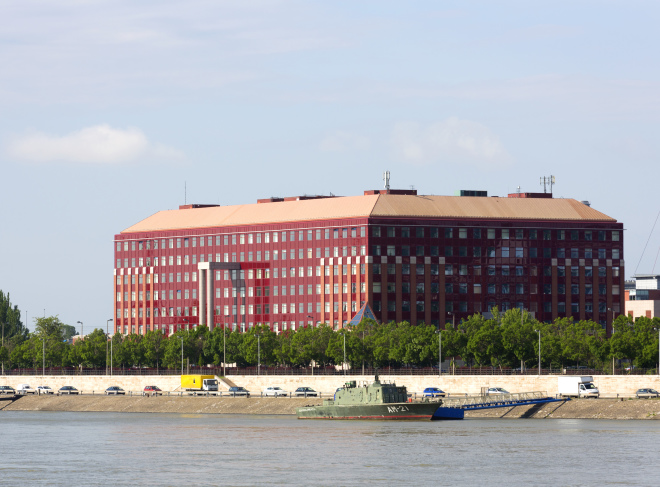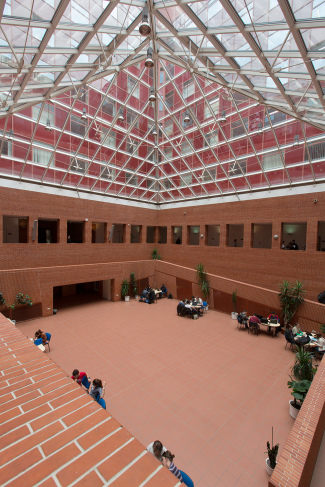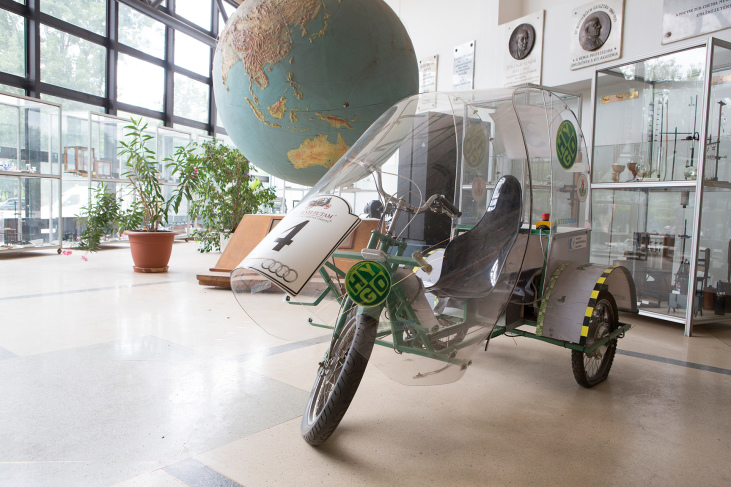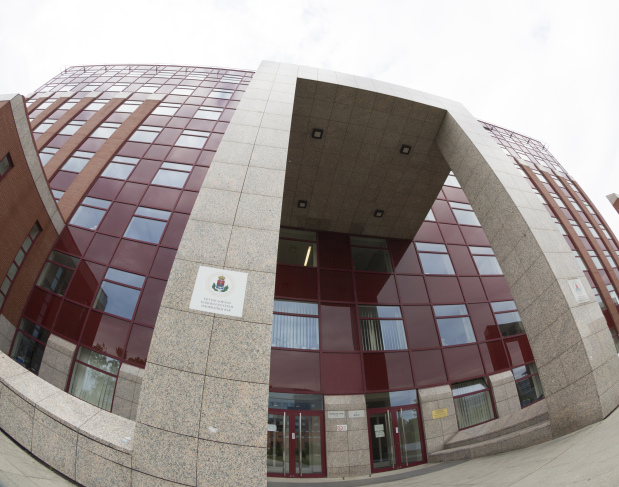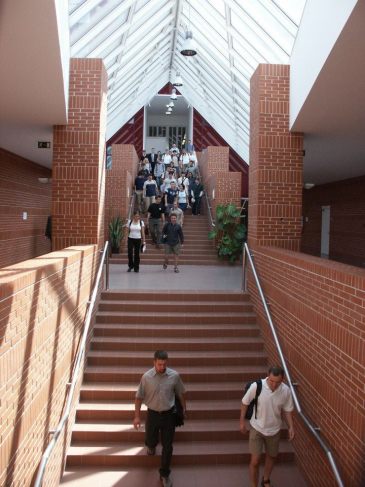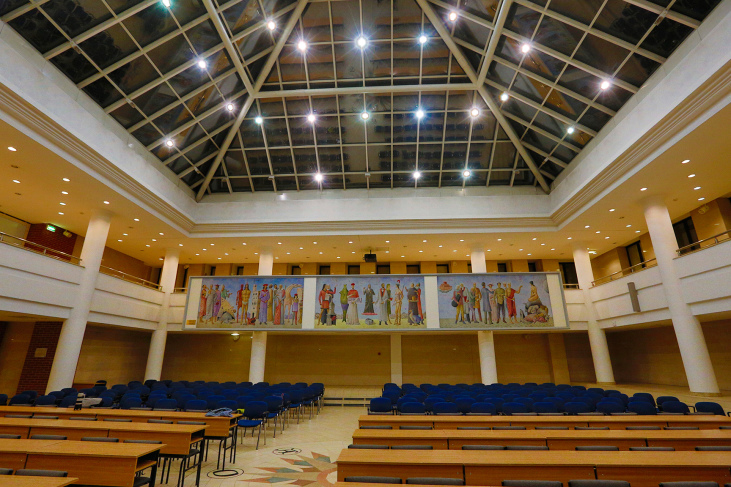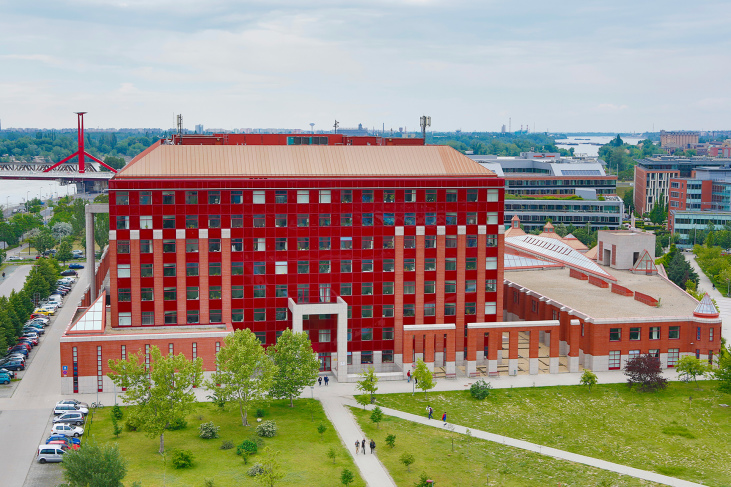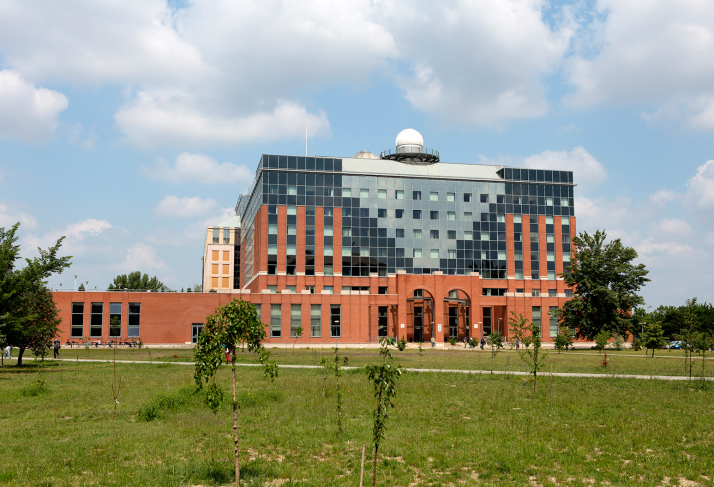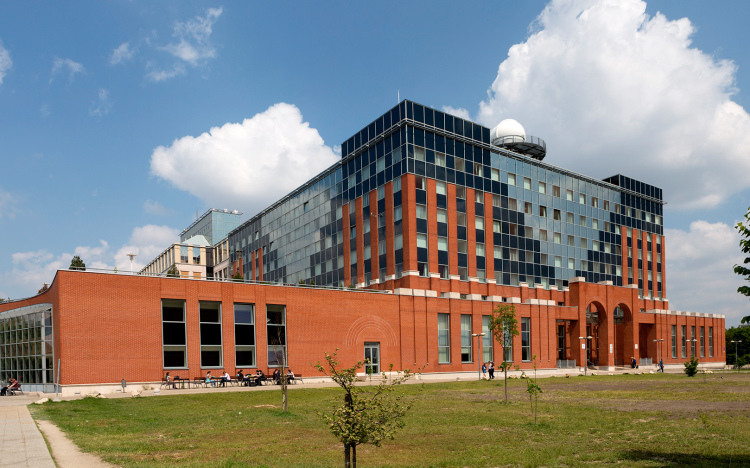Doctoral School of Sociology: PhD Programme in Sociology, PhD Programme in International Studies, and PhD Programme in Interdisciplinary Social Research

Iran, Islamic Republic of
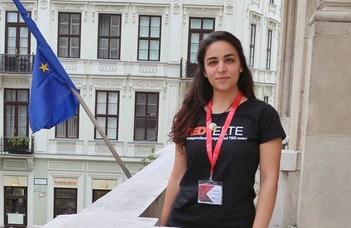
Jordan
Doctoral School of Sociology: PhD Programme in Sociology, PhD Programme in International Studies, and PhD Programme in Interdisciplinary Social Research
Doctor of Philosopy (Ph.D.) in the field of Sociology
Degree program
Doctoral
MAB 2017/6/IX/33/2/1101
English
8 semesters (4 years)
240
3
20
The aim of this programme is to ensure the existence of a new generation of scholars dedicated to the social sciences, and especially sociology, and to prepare them thoroughly for the acquisition of the doctoral degree and for independent academic research and teaching at the postgraduate academic level. The doctoral school offers three programmes: Sociology, International Studies, and Interdisciplinary Social Research. The programmes follow international educational standards in the social sciences and have produced graduates who work as highly qualified research experts, university teachers, and training specialists in both theoretical and practical approaches to the various fields of social policy practice at a high level that is also recognized internationally.
This programme is recommended for applicants who are interested in pursuing a career as, for example a university professor, social researcher, scientific expert, political analyst, political expert, social policy analyst, media expert, or international policy expert (see the Career section below for more details on further employment opportunities). The Doctoral School welcomes all students, lecturers and research topics, and does not discriminate on the basis of ethnic or cultural background, political views, disability, gender identity, self-expression or sexual orientation.
This programme enables students to observe and examine social phenomena and their interrelationships in their cultural and historical contexts, in their economic and social embeddedness, and in the diversity of their possible methodological approaches. Students must demonstrate their ability to conduct individual research leading to innovative solutions, to present their findings internationally according to the standards of scientific communication and to apply their results for the benefit of society.
Tracks/Specializations
- Sociology
- International Studies
- Interdisciplinary Social Research
- Compatibility with international social science doctoral programmes
- Interoperability with other programmes and educational levels
- Research-oriented education and training
- Interdisciplinarity
- Combining quantitative and qualitative methods
- Intensive personal professional care with students
- International relations and opportunities for shorter study abroad
Post Graduate (PhD) Programme of Sociology
Discipline: Social Sciences
Post Graduate (PhD) Programme of Sociology
Discipline: International Studies
The programme aims to provide this in accordance with the international standards of education in the social sciences, meeting both formal and content requirements; and to produce highly qualified research experts and university teachers in the future, as well as training specialists (of both theoretical and practical) in the various fields of social policy practice at a high level, recognized internationally.
- University professor
- Social researcher
- Scientific experts
- Political analyst
- Political expert
- Social policy analyst
- Media expert
1200 EUR
1,750 EUR
EUR 80 (non-refundable) between 01/10/2023-15/11/2023 EUR 100 (non-refundable) between 16/11/2023-30/04/2024 EUR 120 (non-refundable) between 01/05/2024-31/05/2024
EUR 80 (non-refundable) between 01/10/2023-15/11/2023 EUR 100 (non-refundable) between 16/11/2023-30/04/2024 EUR 120 (non-refundable) between 01/05/2024-31/05/2024
1,750 EUR
EUR 80 (non-refundable) between 01/10/2023-15/11/2023 EUR 100 (non-refundable) between 16/11/2023-30/04/2024 EUR 120 (non-refundable) between 01/05/2024-31/05/2024
Yes
01, Sep, 2025
31, May, 2025
No
Entry requirements
MA or MSc degree in social sciences, or related fields (as well as other university-level qualifications relevant to applicant’s research topics) and a successful admission interview.
Language requirements
Minimum level of language proficiency (oral) (A1-C2): B2
Minimum level of language proficiency (written) (A1-C2): B2
Further comments:
Minimum B2 level or above (CEFR B2; IELTS: 6; TOEFL 72).
If the language of instruction during the applicant’s previous education was English, a university degree or high school diploma will suffice. Students are required to use the English language effectively for academic and professional purposes.
An additional Complex Intermediate State Examination or equivalent in a foreign language (non-Hungarian) is required to complete the programme. Native languages (other than English) may be accepted as a second foreign language. Knowledge of the native language may be demonstrated by a university degree or high school diploma.
|
Document |
Comment |
|
Obligatory |
|
|
Master-level degree |
Obligatory |
|
Transcript of records |
Obligatory |
|
CV |
Obligatory |
|
Motivation letter |
Obligatory |
|
Research work plan |
Obligatory |
|
Copy of the main pages of the passport (needs to be valid) |
Obligatory |
|
Copy of application fee transfer |
Obligatory |
|
Reference work |
Obligatory. Length no more than 6000 words, an earlier work done by the applicant (e.g.: workshop work, shortened version of a thesis or published scientific paper) |
|
Language certificate |
Obligatory |
|
Letter of Recommendation |
Optional |
|
list of publications |
Optional |
|
Statement by the supervisor, that they accept the role of supervisor/tutor until the end of the student's academic career |
Optional |
|
Copy of awards in professional competitions |
Optional |
The application starts at the online application system. Students need to register in the system, fill in the online application form, upload the required documents and follow the instructions during the application process.
Students who (also) hold Hungarian citizenship must apply through https://doktorifelveteli.elte.hu/.
Entrance examination and selection process:
The application deadline refers to the final submission of the complete application package through the online system.
For the September intake, there are three application periods:
- Early Bird Period: October 1, 2024, to November 15, 2024, 23:59 (CET)
- Regular Period: November 20, 2024, to April 30, 2025, 23:59 (CET)
- Last Call Period: May 5, 2025, to May 31, 2025, 23:59 (CET)
These distinct periods allow applicants the flexibility to submit their applications at their convenience. All applicants within each period have an equal chance of gaining admission to the programme.
After each application deadline, the Admission Board reviews the applications. After the admission interview, applicants are informed of the selection outcome through the online application system within approximately one month. Admission letters are expected to be sent out through the online application system until the end of July. For February intake and Early Bird applications, admission letters are expected to be sent out through the online application system until the end of December.
Based on the results, certain students may be placed on a waiting list. Final results are expected by the first half of August.
Type of entrance examination: Oral
Place of entrance examination: Online
Further details of the entrance exam:
Applicants need to submit their MA/MSc degree, transcript of records, CV, motivation letter, research plan, and reference work.
IF the degree meets the eligibility criteria, the following step is the oral interview via MS Teams. The recruiting committee will decide upon admission.
Further details of selection and evaluation
Applicants with a full application package will be asked to participate in an oral entrance exam. The institutional admission scores are based on a total evaluation of academic excellence (based on the submitted documents) and the results of the entrance exam. The entrance exam seeks to assess the general and professional knowledge and interest of the applicant.
A successful oral entrance exam is the prerequisite of getting admitted. If the applicant fails the oral entrance exam, the application will be rejected.
Dr. Zsombor BÓDY
Head of the Doctoral School of Sociology, Professor
E-mail: doktori@tatk.elte.hu
TEL: +36-1-372-2500/6650
H-1117 Budapest, Pázmány Péter sétány 1/a
International Office, Faculty of Social Sciences
TEL: +36-1-372-2500/6779
E-mail: international@tatk.elte.hu
Postal address:, Pázmány Péter sétány 1/A, Budapest, H-1117
More information
Website of the Doctoral School
Facebook page of the Faculty of Social Sciences
Brochure
Faculty of Social Sciences
Faculty of Social Sciences
Eötvös Loránd University (ELTE) offers more than 60 degree programs in foreign languages in the fields of Education and Psychology, Humanities, Informatics, Law, Social Sciences and Science. Currently, about 2400 international students study at ELTE and the community of international students is growing from year to year. Check out what our international students think and discover the wide-range of opportunities waiting for you at ELTE. Join the growing international community of ELTE.
Eötvös Loránd University (ELTE) offers more than 60 degree programs in foreign languages in the fields of Education and Psychology, Humanities, Informatics, Law, Social Sciences and Science. Currently, about 2400 international students study at ELTE and the community of international students is growing from year to year. Check out what our international students think and discover the wide-range of opportunities waiting for you at ELTE. Join the growing international community of ELTE.
0
/
0

















0
/
0

